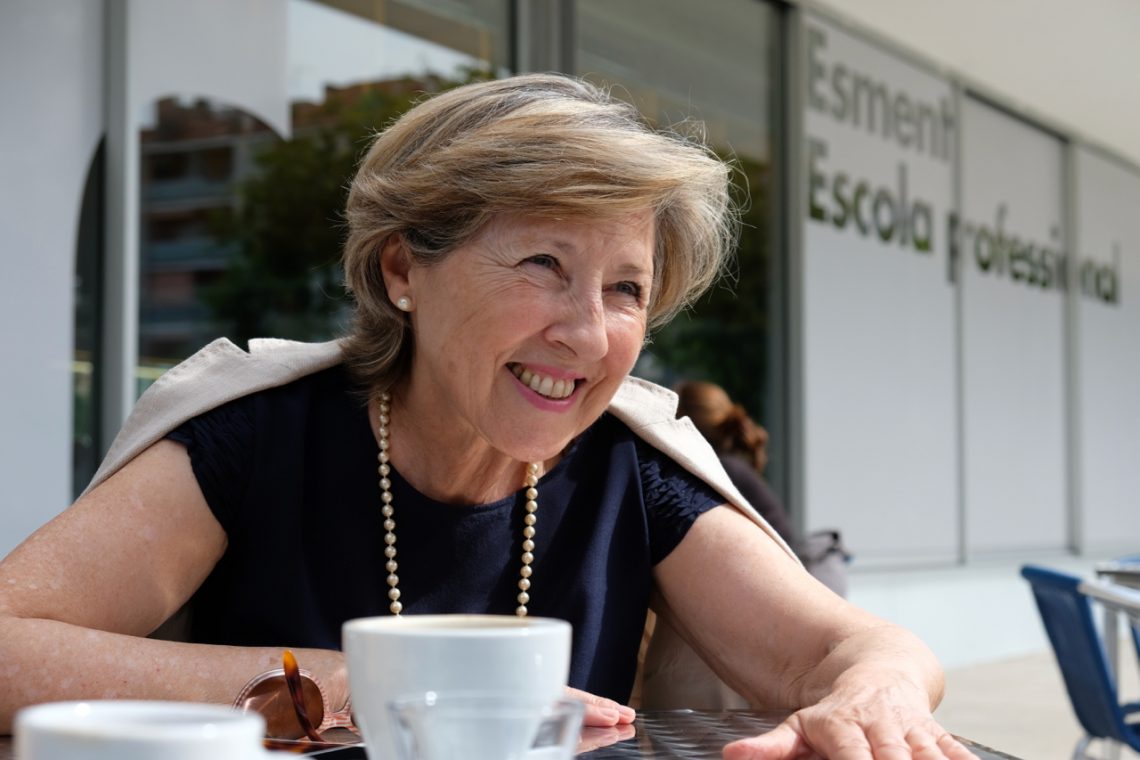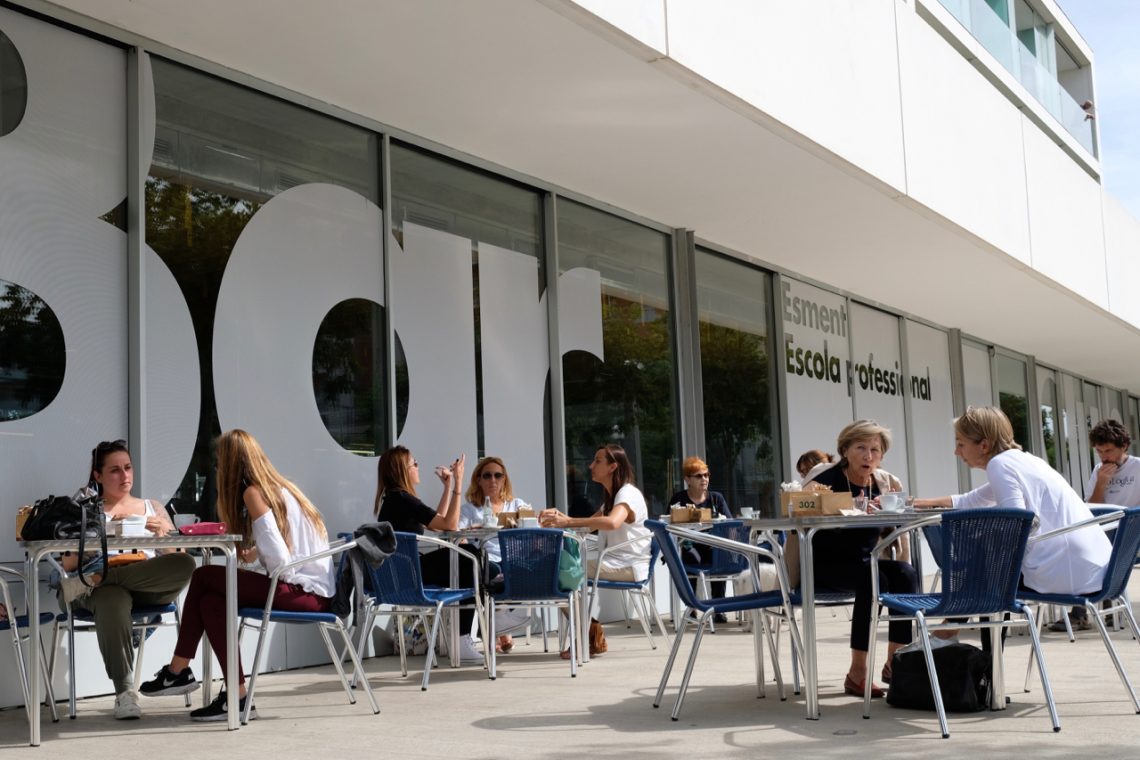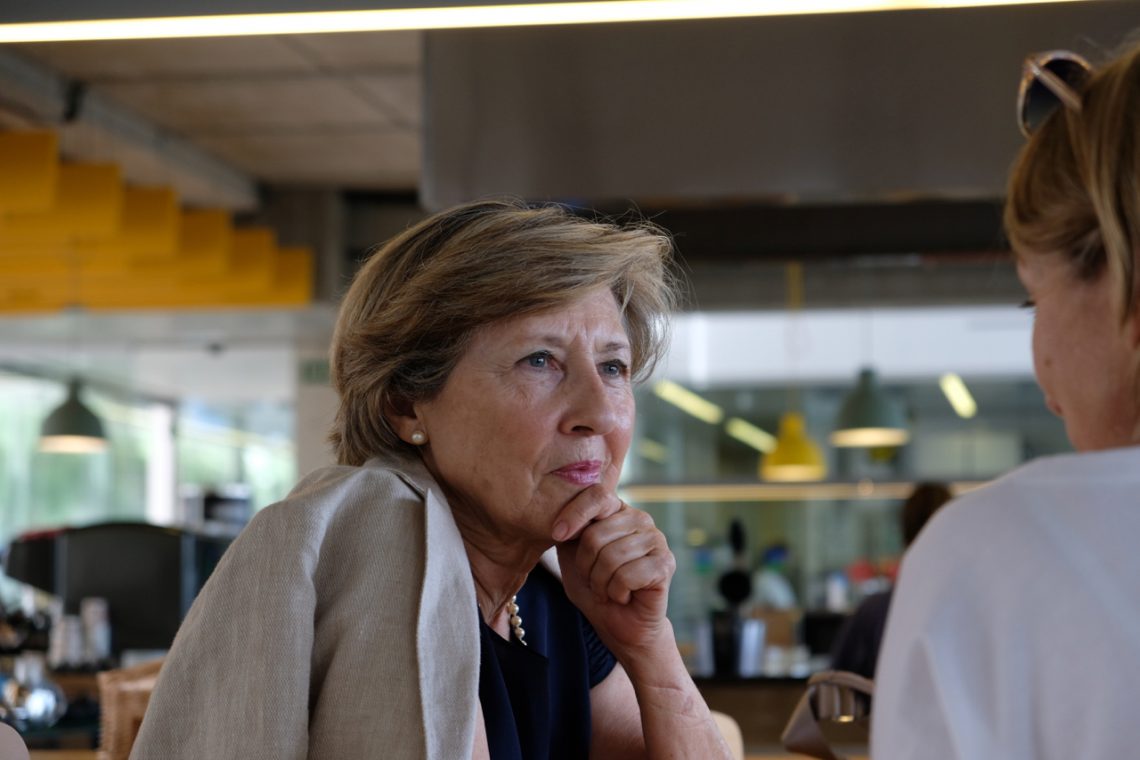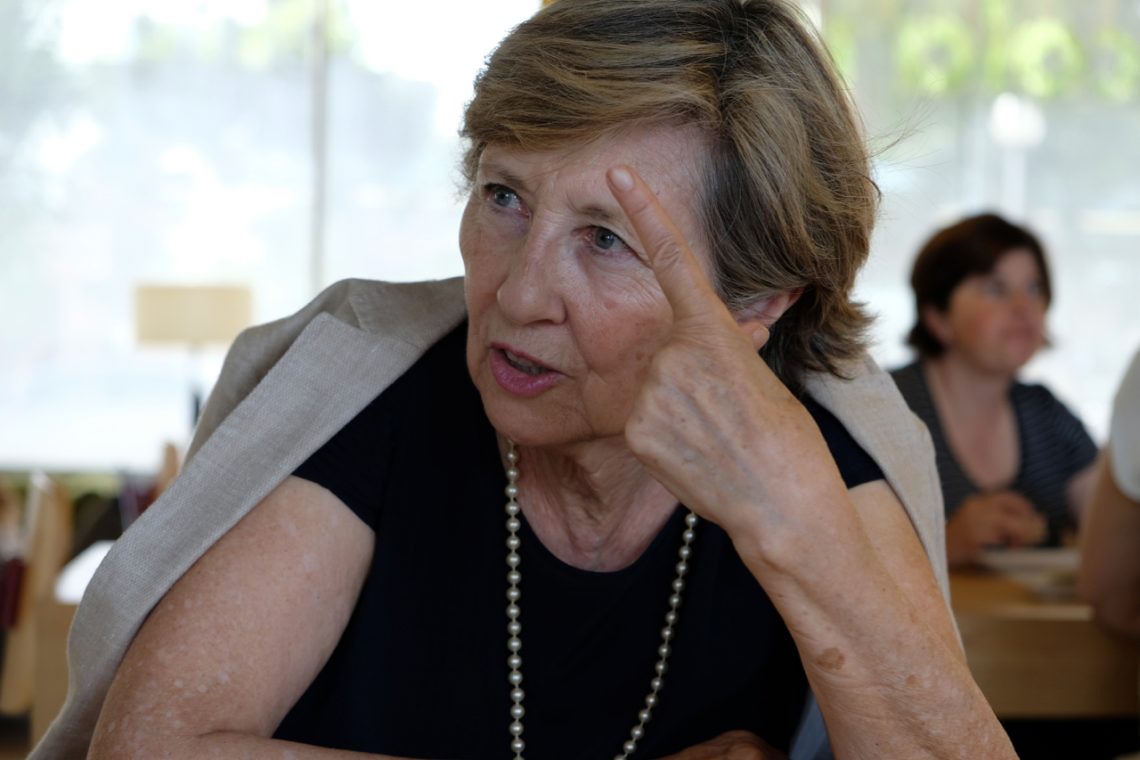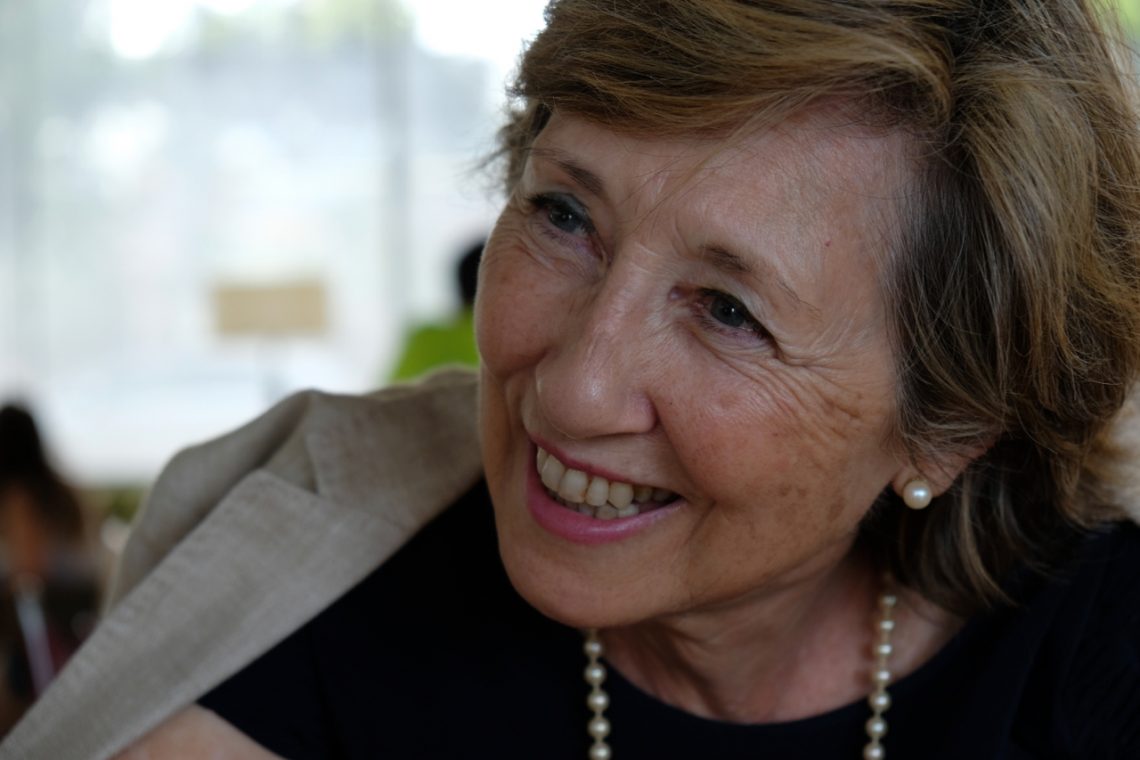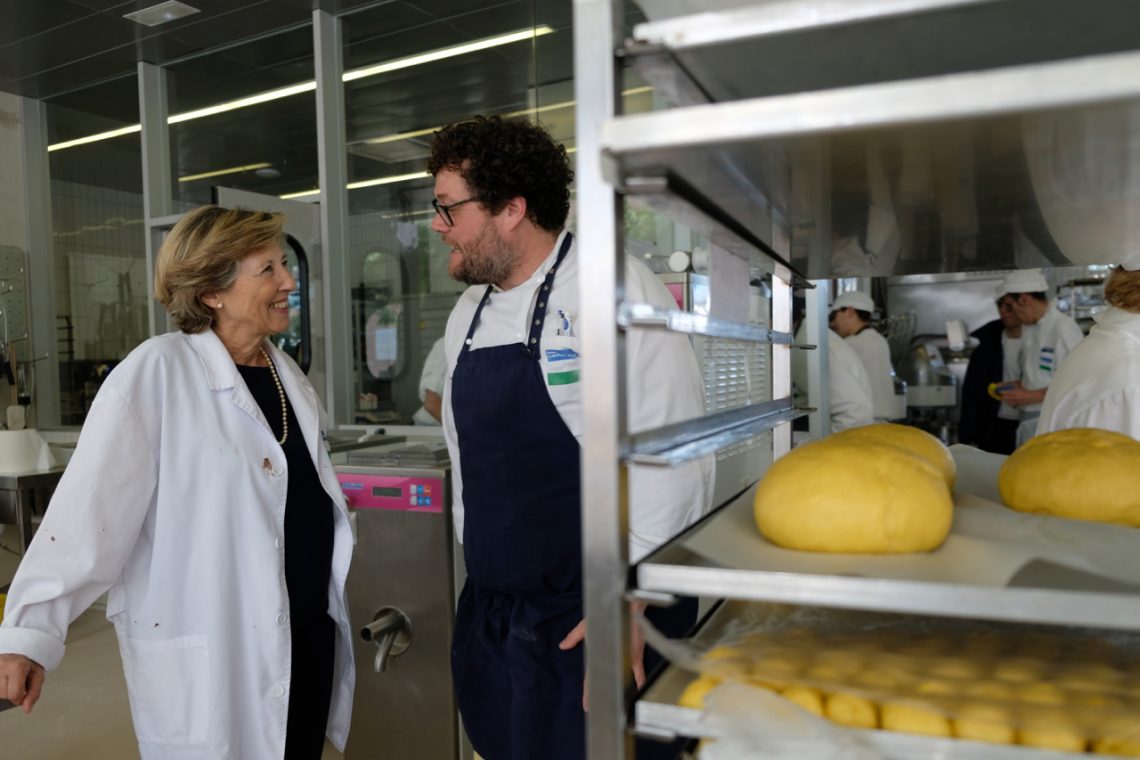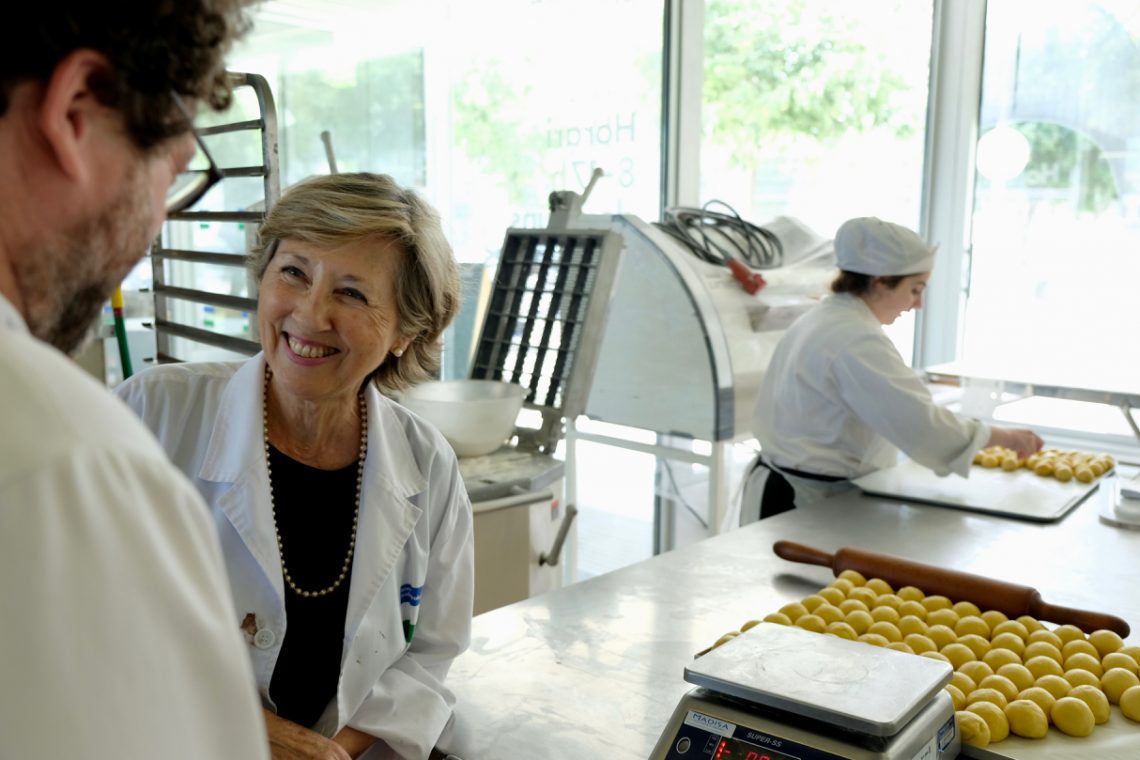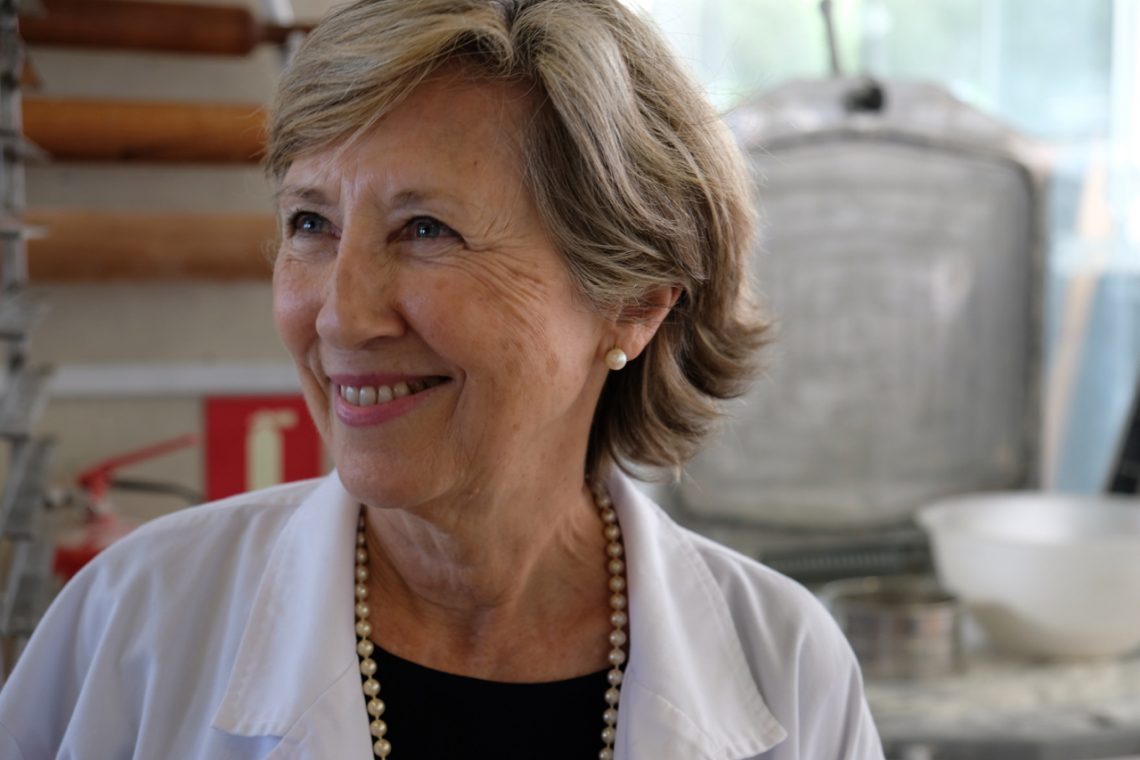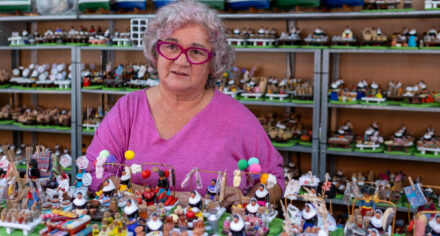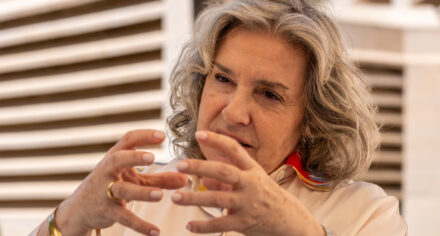Montserrat Fuster Cabrer, President of Amadip Esment, about a life-changing experience and how we are all more capable than we – or others – think.
Looking at the bright modern building of Esment Escola Professional it’s difficult to imagine the hard, adverse beginnings of the wonderful foundation that changed the lives of so many young people. Inclusion was a foreign word to most people, when Amadip Esment was founded in Palma in 1962. Its main concern was to offer professional training for young students with mental disabilities and help them to get apprenticeships and regular jobs in the regional economy. An ambitious project at a time when handicapped people could only live within their families, hidden from the public and with no way to participate in what others considered to be a normal life. Business people and politicians call the idea a win-win, but for me it’s story about brave people who paved the way for a more human society.
Montserrat’s third child, her daughter Lourdes, was born with Down’s syndrome in the early 80’s, and she changed the life of her whole family, first of all that of her mother’s. For 33 years now, Montserrat has been head and face of Amadip Esment, short for Asociación Mallorquina para Disminuidos Psíquicos. Esment, a genuine Mallorqui word, means doing things with care, attention, and tenderness. I met Montserrat at the Bar of Esment Escola, and we talked about these qualities a lot.
Montse, you worked as a professor for English culture and language for almost 40 years, didn’t you?
Yes, that’s true but believe it or not, I haven’t spoken any English for eight years. So I was a little nervous this morning. But then my daughter Lourdes told me “Don’t worry, mum, you’ll be fine.” I have learned so many things from her. She is working in the Museo de los Molinos, the historic wind mill in Santa Catalina, assisting the visitors. The museum is one out of many fantastic projects here on the islands that really care about and support the young people of Amadip.
Lourdes is your third child – she was the reason for you to get engaged at Amadip Esment?
When she was three years old, I was called to become president of the Foundation. But I was still trying hard to manage the challenges I was facing with Lourdes and had no experience at all with an organisation like Amadip. I didn’t realise that I could really change things for the better. So I said, ‚No!‘. But they kept trying to persuade me. So I gave in reluctantly and said I would give it a try, but only for one single year. And suddenly I realised that I am here for 33 years, now.
How does Amadip take care of the young people?
The most important thing was – and still is – to change the way people look at them. But it’s not only a question of perception. We also wanted to bring those kids out of the shadow, to form an inclusive society. So the Foundation accompanies them throughout their whole life: it trains them for a profession, it provides housing, leisure activities, and guard, when they have no more family. These young people, they can do everything with a little support. People have different needs, but we all need support – one way or the other. For sure, I need a lot of support in my life.
And the vocational training takes place right here, at Esment Escola?
Exactly. We offer vocational training and we bring students and local businesses together for apprenticeships. And I can proudly say, that we are very successful in what we do here. Today, the kids work in all kinds of services: in printing press, organic agriculture and gardening, hotels, restaurants, bakeries and many other food industries like wine, oil, or chocolate. And they become more and more important for nursing homes, especially for older people. We collaborate with more than 850 companies, just on the island. Can you imagine? Plus, we get about a hundred new applicants every year, asking for our services. I think that’s a big step into real inclusion. And yet, a major goal still is to give our people steady contracts.
What would you say is Amadip’s biggest success so far?
In the 1980’s, there was hardly any support for families with handicapped children. It took us more than 20 years to convince our government that it’s not a question of charity but of dignity to include them into our society. This is a fundamental awareness and prerequisite for real inclusion. We are working on that issue until today but that’s definitely one of our main achievements.
This is very demanding work, but I’m sure you get back so much emotionally.
Oh, we do! Amadip’s engagement now is incredible, we just talked about figures and major questions. But if I want to explain my feelings I am somewhat at a loss. Our children and young people are very emotional. With Lourdes, I can’t afford to be depressed, I have to be happy. If I am not happy, she is not happy. Well, we all have our moods. And sometimes it’s difficult to tell who’s the disabled person and who’s not (laughs).
You were born on Mallorca and have lived here most of your life. What is your favorite place on the island?
I love Porto Cristo, the small harbour town on the east coast of Mallorca. It’s where my whole family meets in the summer to spend the holidays together. We always have a wonderful time there. ![]()
Read more about Amadip and their beautiful café Es Pes de Sa Palla.

